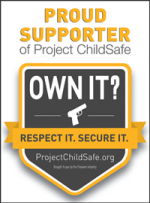Be that as it may, Barret points out four things that the gun ban lobby and their political allies will likely not mention. Among those, the NRA and gun rights activists are not to blame for what happened, the killer is to blame. Also, no gun control would have prevented the killings. Next, and I've read varying views on this but I'll allow Barrett some lattitude, the mental health services for this troubled individual worked about as they were intended. And finally:
We’re stuck. Not in response to all gun crime. We’re making great strides in reducing ordinary violent crime—the kind that’s related to drug trafficking, robbery, assault, and so forth. Violent crime rates in most places in the U.S. are down 50 percent or more since the early 1990s. But we’re stuck when it comes to the premeditated suicide-massacre. A disturbed but presentable young man who lacks a criminal record and decides to shoot up an elementary school, movie theater, or college campus on his way to destroying himself generally will not have trouble obtaining firearms. This is the Second Amendment trade-off, as it has come to be interpreted in the 21st century: access to firearms in exchange for the danger of mass shootings.Two years ago, University of Houston Professor Kyle Scott wrote about the role a moral compass, or lack thereof, plays in crime. It's worth revisiting in light of what we know about Friday's killings.








No comments:
Post a Comment